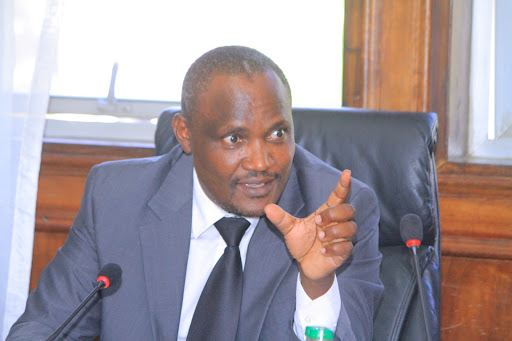
Debate on whether the Government should stop paying examination fees for schools starting next year has elicited varied reactions from a section of Nyeri parents, with the majority rejecting the proposal.
On Saturday, Treasury Cabinet Secretary John Mbadi had hinted that
the Government was pondering over the possibility of discontinuing paying exam
fees for candidates owing to rising budgetary constraints in the education
sector.
Mbadi had also hinted that the State would only be paying
examination fees for students from needy families.
“We have to review the cost in the sense of why we should pay for
examinations for all students, including those in private schools. We should be
subsidising examinations for those who cannot afford them, especially in public
schools,” Mbadi said during an interview.
If effected, this new directive will affect pupils sitting for the
Kenya Primary School Education Assessment (KPSEA), the Kenya Junior Education
Assessment (KJSEA) and the Kenya Certificate of Secondary Education (KCSE).
The CS, however, clarified that those sitting for their national
exams this year would not be affected by the proposed changes.
The National Assembly Education Committee has already proposed an
allocation of Sh5.9 billion in the 2025/2026 budget to foot examination fees.
But some parents in Nyeri feel the plan would be an additional
burden to already existing financial constraints.
They argue that such decisions could lock out hundreds of students
from sitting for the examinations and, in the process, reverse the gains achieved
so far in attaining 100 per cent transition from junior schools to secondary
schools.
“We cannot let short-term budget cuts jeopardise our long-term national development goals. Scrapping examination fees for our children is akin
to denying our children access to education and sabotaging their future,” Joseph Kabiru, a shopkeeper, said.
For Loise Waithera, freezing paying school examination fees would
be a drawback to the education sector as it would lock out many deserving
students from pursuing their goals later in life.
“As a country, we are walking backwards. The exam waiver was a big
step in the education sector and restructuring it with no clear plans of
improving it means we are retracting instead of moving forward,” she said.
Some residents have also questioned how the State would be in a
position to determine those eligible for the subsidy from those who aren’t.
“How do you differentiate between deserving students from those
who are well endowed? Whatever mechanism the Government plans to employ in
implementing this policy will only end up creating confusion just like the new
Higher Education Funding model. The problem is that there is no clear method to
determine this,” Nannie Gabrie said.
Sabastian Omukunda, a food vendor in Nyeri town, suggested
that needy students who rely on Government sponsorship may be left stranded in
the event the Treasury stops sending money to the Kenya National Examinations
to offset national examination fees.
“I am concerned about the needy students who are mainly sponsored
and are in private schools or national schools. In case the sponsorship is
withdrawn, can they still be considered eligible for the examination subsidy?’’ Omukunda posed.
“This entire restructuring will only create confusion, to say the
least. I do not recommend it,” he said.
Other residents like Patrick Nderitu argued for what they termed
equality, calling for the Government to ensure every Kenyan citizen enjoys
government services without discrimination.
“Every parent in this country is a taxpayer; therefore, the
government should keep funding for exams and put the tax we pay into good use.
Even the rich pay taxes, so everyone should be equal in the eyes of the state,”
said Patrick Nderitu, a matatu operator in Nyeri.
The exam fee waiver was introduced in 2015 by the government for
public schools. It was later extended to private schools in 2017, giving free
access to national exams for all students.
Since 2020, the government has allocated approximately Sh5 billion
annually to cover examination expenses for all candidates sitting for the now-defunct Kenya Certificate of Primary Education KCPE and KCSE.












